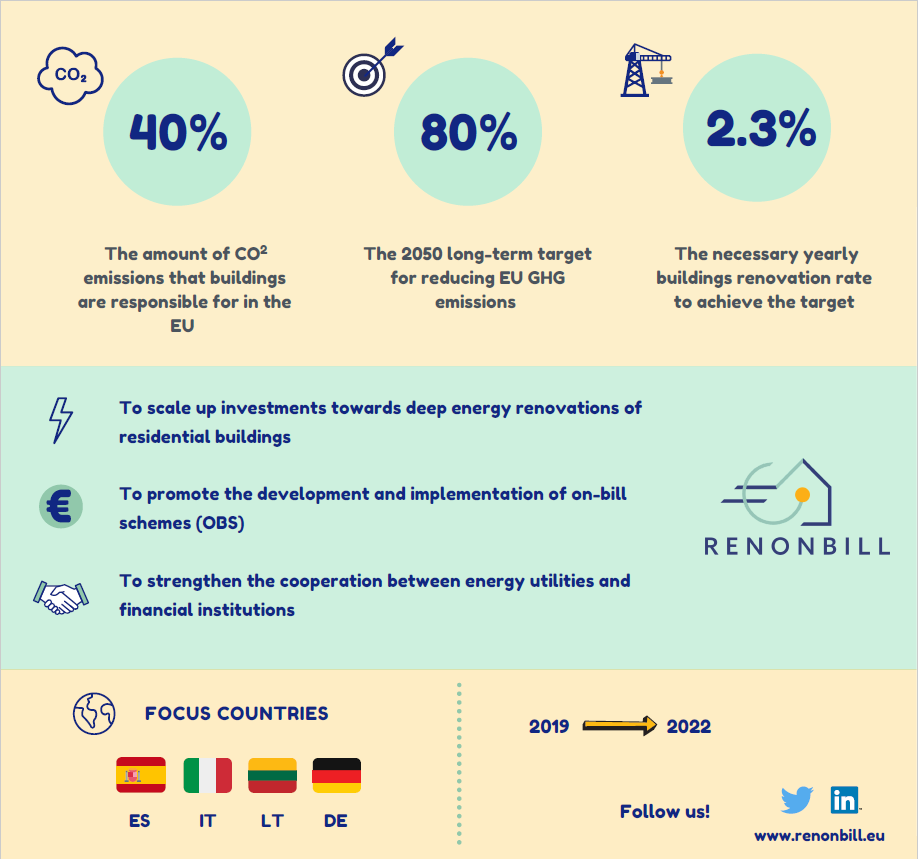In order to achieve the European Commission’s long-term energy vision for 2050, yearly energy investments in the EU need to almost double and of these, energy efficiency improvements in residential buildings represent more than half. Deep retrofits will thus be critical, but, as they can be expensive, new and innovative ways of financing are vital.
On-bill schemes (OBS) are one key innovative way of financing energy efficiency: they bring the up-front costs of energy efficiency upgrades down to zero by simply adding a periodical line item to a customer’s utility bill as the repayment vehicle. This means that the upfront costs for energy improvements may be paid by the utilities or the financial institutions involved, and paid back by the customer overtime through the utility bill. During the payback period, the energy savings can offset the line item added, allowing the bill to remain unchanged; after the complete repayment of the energy efficiency improvements, the bill will be much lower.
OBS programmes have been in use for more than 30 years, and are especially widespread in the USA and Canada, where they significantly drive the building renovation market. For example, in the USA, average OBS loans can be up to USD 25,000, for 100s of projects in one programme. In Europe, few attempts have been made, such as the UK’s Green Deal and Latvia’s SUNShINE, but the potential for on-bill schemes in Europe is still very significant.
Here is where the new EU-funded project RenOnBill comes in: by promoting the development and implementation of on-bill schemes, RenOnBill aims to scale up investments towards deep energy renovations of residential buildings. Starting from an analysis of existing OBS to lay the foundation for replication in Europe, RenOnBill engages stakeholders at the national level, to foster cooperation among the different actors and jointly develop national roadmaps for the replication of OBS in four focus countries. RenOnBill will then develop a tool to structure the residential sector’s energy renovation demand, by assessing risks and investments. It will finally test the results on the three partner utilities, for which tailored business models will be developed. RenOnBill’s four focus countries are Germany, Italy, Lithuania and Spain, chosen to capture to an extent the differences that can be encountered when replicating on-bill schemes across wider Europe.
Read the full Press release here.
Follow RenOnBill on Twitter and LinkedIn to join the discussion and check out the new website!
